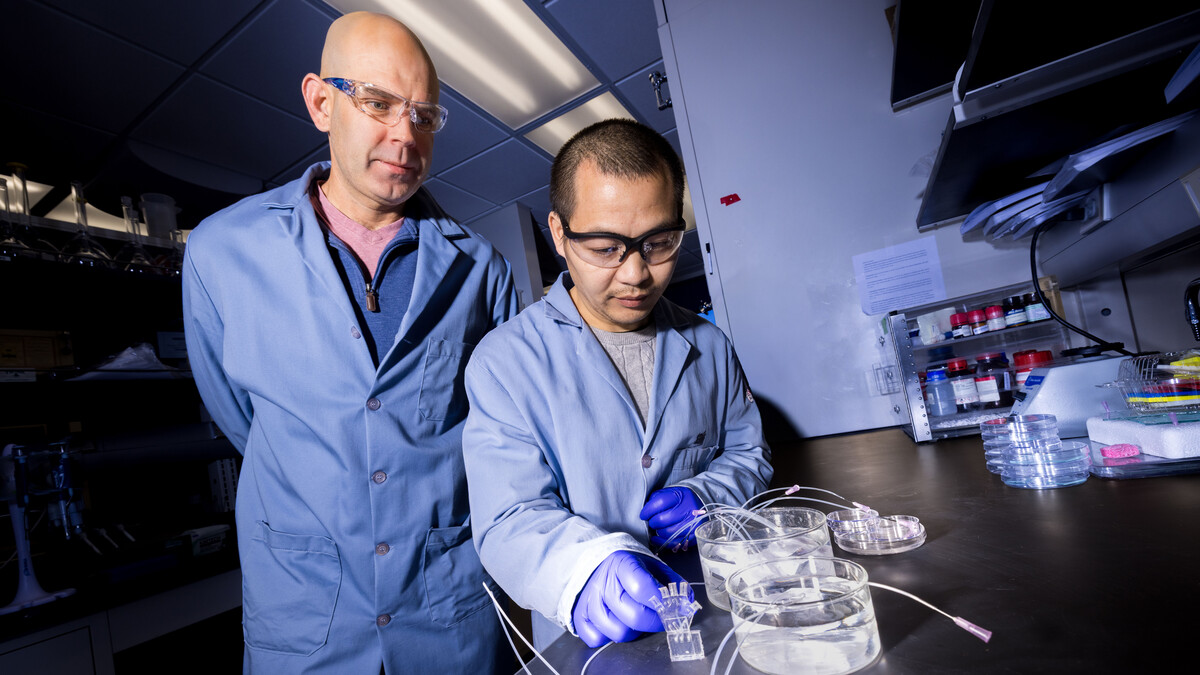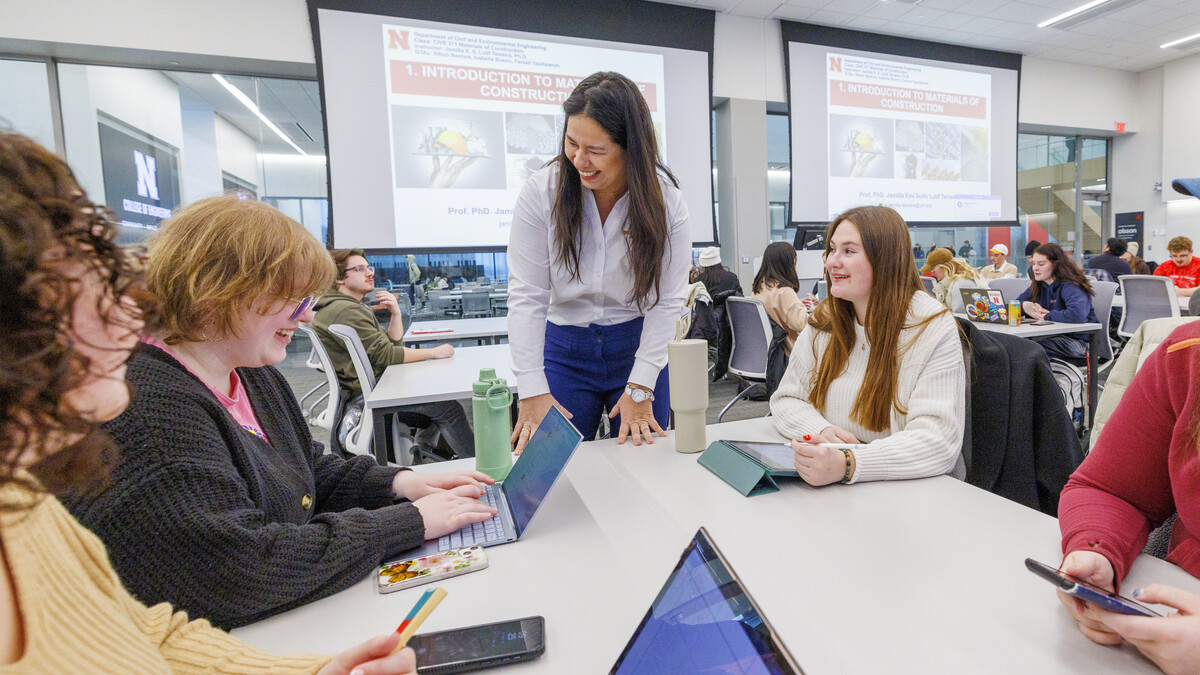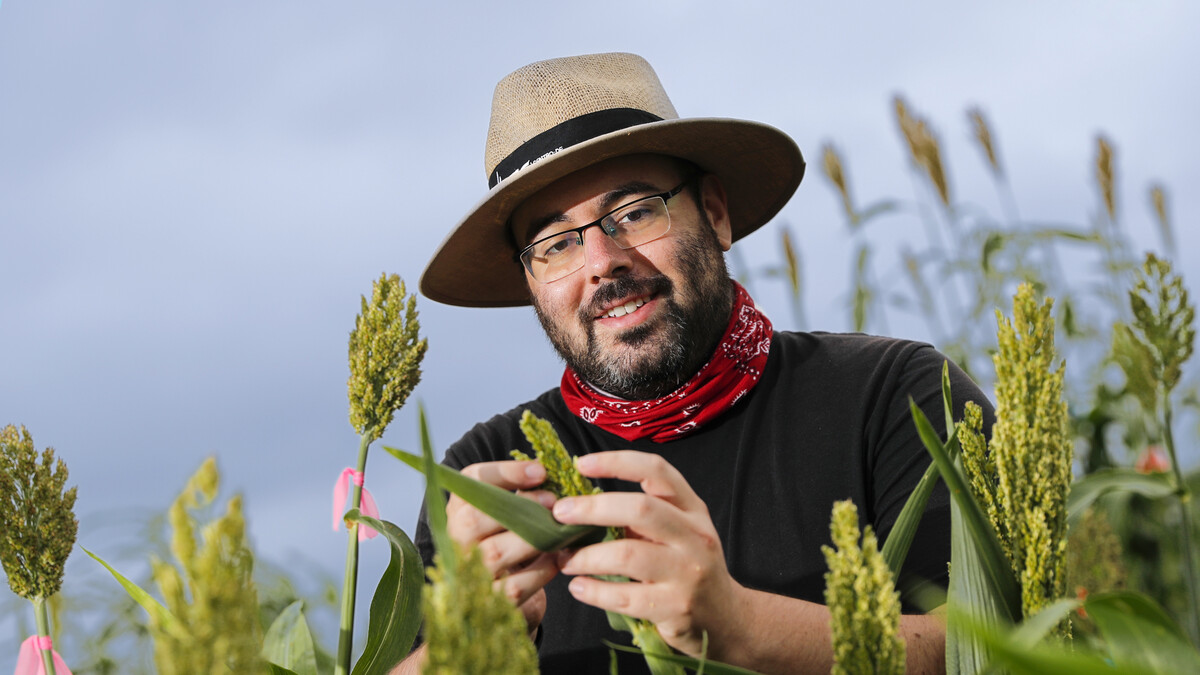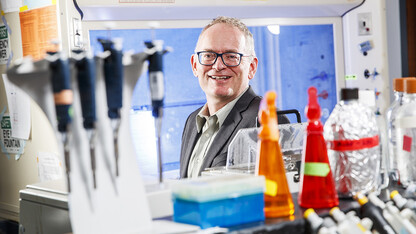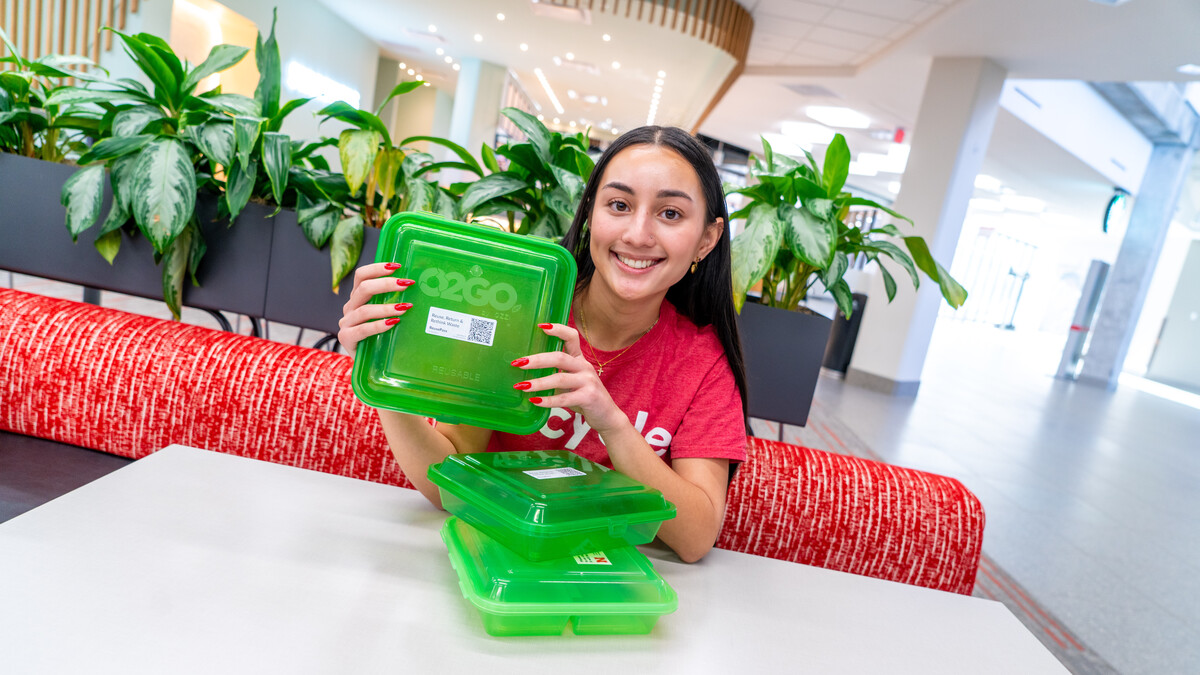
The Water for Food Global Forum entered its second week of month-long virtual content, convening leading international experts, growers and organizations to tackle issues related to achieving global water and food security and focus on integrating knowledge and practice.
The forum, hosted this October by the Water for Food Global Institute at the University of Nebraska, offers a month of both on-demand and live discussions, presentations, workshops and case studies. Theforum will provide an opportunity for individuals with diverse areas of expertise and interest to learn about, collaborate and strategize solutions to pressing issues related to water and food, including those exacerbated by the COVID-19 pandemic. All sessions are free to open to the public after registering.
Week two’s topic is “Innovation and Entrepreneurship in Agricultural Water Management.” During its live sessions, the forum will showcase women innovators who are working to solve farming challenges, as well as considering the future of farmer-led irrigation in sub–Saharan Africa. This week also includes three live side events: a workshop on how to get the most out of your field interviews; an introduction to the Dashboard for Agricultural Water Use and Nutrient Management (or DAWN project); and updates on research activities within the Irrigation Innovation Consortium.
Live sessions
Women Innovators Working to Solve Farming Challenges | Oct. 14, 9-10 a.m.
Growers in the U.S. and globally face rising challenges including climate change, limited water and land supply, uncertainties in immigration policy, a severe labor shortage and feeding a rising population estimated at 9 billion in 2050.
A new generation of startups led by women, with a diversity of backgrounds and ethnicities, are seeking to provide novel perspectives and solutions to agriculture’s problems with tech innovation. Diversity is often a source of innovation, yet — despite large increases in funding for agtech companies — only 7% of agtech and food tech investment funds went to women-founded startups in 2019 .
This moderated discussion and audience question and answer session features the founder and director of the award-winning documentary, “From Farms to Incubators,” and a newly-released book by the same name. We will be joined by two women who have founded agtech companies, as well as the director of Innovation Commercialization from the Donald Danforth Plant Science Center. This session is sponsored in part by Wells Fargo/NREL IN2 through a Channel Partner award.
Moderators are Natacha Akaliza, program consultant, Daugherty Water for Food Global Institute, and Raïssa Urujeni, program consultant, Daugherty Water for Food Global Institute. Speakers are Fatma Kaplan, CEO and co-founder, Pheronym; Claire Kinlaw, director of innovation commercialization, Danforth Plant Science Center; Penelope Nagel, president, Persistence Data Mining Inc.; and Amy Wu, founder and director, “From Farms to Incubators,” communications manager, Hudson Valley Farm Hub.
The future of the farmer-led irrigation development experience in sub-Saharan Africa | Oct. 14, 10-11 a.m.
Since the first farmer-led irrigation event at the Water for Food International Forum in 2017, several countries and institutions have mainstreamed the farmer-led irrigation development approach into their Agricultural Water Management portfolio. Farmer-led irrigation holds the potential to build resilience of smallholder farming systems while supporting governments to achieve sustainable development goals in a changing climate. Farmer-led irrigation development is a process in which farmers drive the establishment, improvement and expansion of irrigated agriculture, often in interaction with other actors. This concept shows a lower burden and a quicker return on public finance as the irrigation investment cost per hectare is generally lower since irrigation solutions related to the access and distribution of water are often less costly and smaller in scale, serving single or smaller groups of farmers. Furthermore, farmers use their own money to (re)invest into irrigation solutions, agricultural inputs and irrigation services and therefore co-finance irrigation development. The development of farmer-led irrigation can also reach a wider diversity of farming, empower women and respond to natural disasters like droughts or pandemic, making it an attractive solution for governments as part of national climate adaptation plans. Farmer-led irrigation development has gained popularity in African policy circles, and as more development, research and implementing organizations get behind it, the question arises of what we have learned since 2017 and what it should look like in the future.
This session brings together development experts in research, policy and implementation to discuss how they envision farmer-led irrigation development in the future in order to effectively contribute to global food and nutritional goals by 2030. The moderator is Montaha Hassan, operations officer, International Finance Corporation. The panelists are Mure Agbonlahor, agricultural production and marketing officer, African Union Commission; Belete Bantero, team lead, Power Access ACC Programs, Ethiopian Agricultural Transformation Agency; Michelle Kurian, CEO, Harvest Fund; Bancy Mati, Professor, Jomo Kenyatta University of Agriculture and Technology and chairperson, Association of Irrigation Acceleration Platform, Kenya; Moffatt Ngugi, supervisory agriculture development officer, USAID; Mark Smith, director general, International Water Management Institute; and Pieter Waalewijn, global lead water in agriculture, The World Bank.
Other live sessions this week include:
Discovery Interviews: Tips to get the most out of your field interviews & understand the landscape, Tuesday, Oct. 12, 9-10 a.m.
From climate models to farmer decision support: An introduction to the DAWN project, Thursday, Oct. 14, 1-2:30 p.m.
Improving irrigation efficiency and management: Where we are and what comes next, Friday Oct. 15, 9-10:30 a.m.
On-demand sessions this week include:
The renaissance of irrigated agriculture, a keynote by Aric Olson, President of Jain Irrigation
Ecosystem mapping workshop: A case study on the Rwandan smallholder irrigation ecosystem
Future week’s themes are:
Water and nutrient management (Oct. 17-23)
Climate change and extreme events (Oct. 24-30)
The full agenda and additional speaker information is available here.
